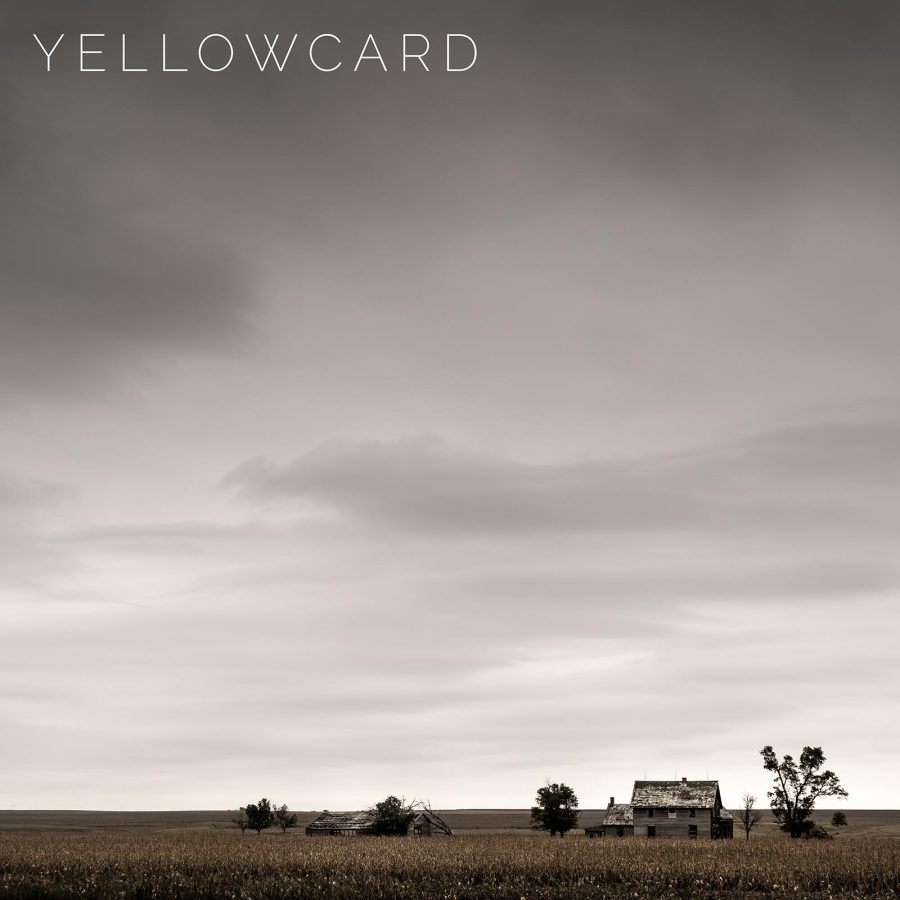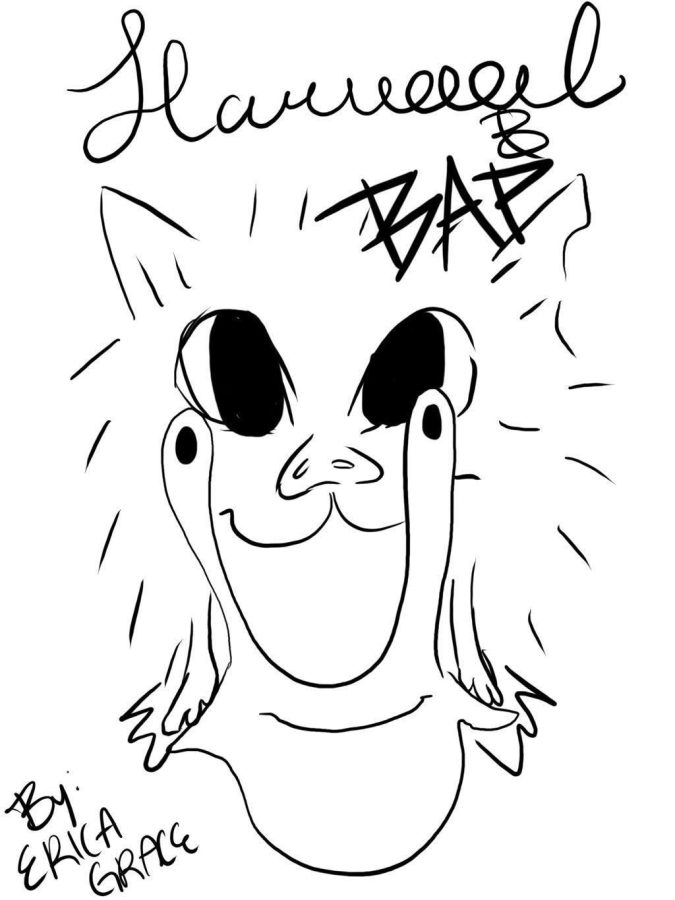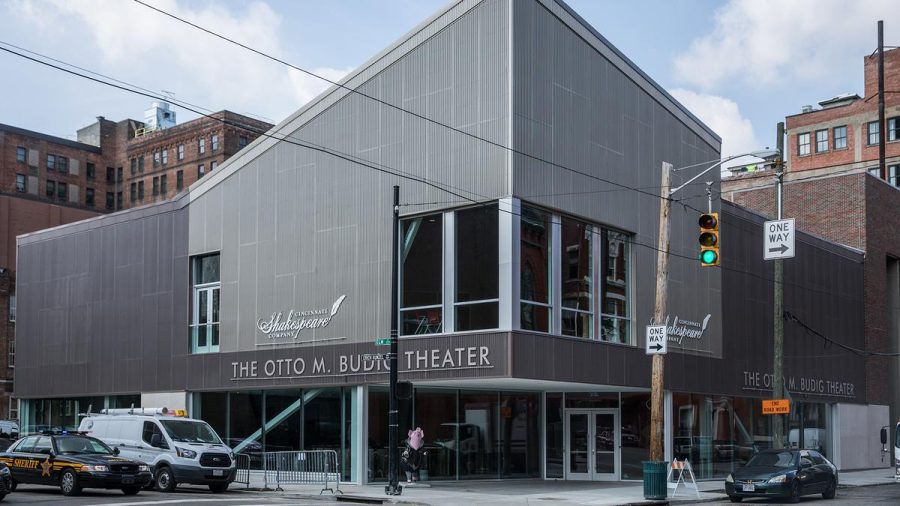By Liz Keller ’17, Arts and Entertainment Editor
Yellowcard released their final studio album on September 30th, 2016, titled Yellowcard. The Jacksonville, Florida band is known for their hit song Ocean Avenue (2003) and their extensive use of the violin, for which they won a Vans “Off The Wall” Award for Innovation at the Alternative Press Music Awards in 2016. Beginning in 1997, the band’s final iteration consisted of Ryan Key singing and playing rhythm guitar and piano, Sean Macklin providing vocals and playing violin, Ryan Mendez playing guitar and singing backup and Josh Portman playing bass guitar, along with Nate Young playing drums for the album only.
The album begins with the song “Rest In Peace”, a fitting title for the first song of a final album. Like many Yellowcard songs, it is a love song. The rhythm of the song is extremely catchy and the variety of instruments provides a full soundscape which breaks into an intense guitar solo after the second chorus. “What Appears” details the story and fans of a band that is about to end. This song has more of a rock vibe than the previous one, with a rhythm that reminds me of the nineties. There is less emphasis on the violin, and a lack of piano, making it feel more like a traditional song. The most moving lyric in the song is “I am not what appears/ I am failures and fears” which describes how even successful people can be nervous for the next stage of their life.
The theme of “Got Yours” seems to be an exercise in futility. Fast-paced, the song seems to capture the feeling of a relationship for someone wracked with anxiety. There is also less of an emphasis on the violin in this song, but it permeates the background. “A Place We Set Afire” slows the album down a great bit. Another love song, it details the possible end of a relationship. The drums are prominent with the other instruments adding more of a vague feeling in the third verse. After the second chorus, the song enters an instrumental verse, mainly guitar and violin working in harmony. This is the song that you raise your lighters (or phone flashlights) to and wave your arms back and forth, which seems strange for the beginning of an album.
With predominant pianos, “Leave A Light On” is an ode to a lost lover, and a plea for them to return. The song is relatively simple and slow-paced in comparison to other pop-punk songs, and especially other Yellowcard songs which are usually complex. However, this magnifies the pain and sadness of the narrator. This song features only vocals and piano, with violin kicking in about halfway through. “The Hurt Is Gone” begins with an almost psychedelic echo-y section before a guitar starts to leave it in the background. This song is more fast-paced and well, very 2005, in the best way possible. It speaks to the inevitability of the future, but also that there is always time to make a change, a seemingly contradictory concept. After the second chorus, a seemingly familiar pattern for Yellowcard, the violin become dominant and enters another instrumental period. The song ends with another long instrumental period and some light vocals simply saying “The hurt is gone/ Yeah it’s gone.” A twenty-five-second-long violin solo builds up into “Empty Street”. “Empty Street” is a classic pop-punk anthem. A love song about someone searching for a lost love, but also saying to do what makes you happy and have no regrets, themes which are the Zeitgeist of the genre. Though it is lyrically sad, it is uplifting musically. It is the happiest possible goodbye to a lover, and ends, typically with a long instrumental section.
“I’m A Wrecking Ball” is sort of like a slow country or folk song, which is atypical, but thankfully without the country vocals. But lyrically, especially with “In my head I tend to spend my time,” it is the essence of a punk-pop song. It features mostly an acoustic guitar with occasional electric guitar striking in for a note. The chorus is repeated many times, with little variation until the last chorus, which seems to have underlying tones of self-hatred or exhaustion. In contrast “Savior’s Robes” begins more like a metalcore song, until the vocals kick in and bring it back to pop-punk, while the instruments remain more intense. This song, about a toxic relationship, calls the lover “a devil in a Savior’s Robes” which seems harsh, but captures the intensity of a bad relationship. The song continues with a creepier two-minute instrumental which seems altogether desperate and dark. When the vocals return, they are echo-ier for a chorus and then the song returns to the feeling it had throughout the first verse. The last song on the album, “Fields & Fences” has more of a country feel as well, and is reminiscent of childhood. However, it is Yellowcard’s eulogy. In the beginning the violin makes the song sound happier, but towards the end its undertones turn sad. Halfway through, the song breaks back up into a heart-lifting section which seems to ask fans not to mourn, but to remember the good times instead. The last verse perfectly encapsulates what music means to fans: it makes them feel at home, and that they are not alone.






